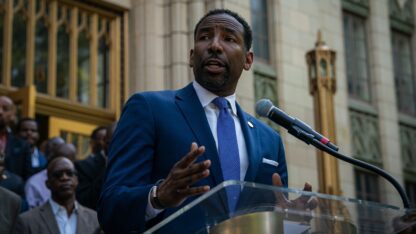220,000 Georgians Sign up for Health Insurance Exchange
The state says more than 220,000 Georgians have signed up for insurance coverage under a federal health exchange that’s part of the Affordable Care Act.
The numbers were gathered from insurance companies participating in the exchange. State Insurance Commissioner Ralph Hudgens says of the more than 220,000 Georgians who applied a little less than half have paid for policies and most are receiving a federal subsidy. Hudgens is an opponent of the law. He says Georgia’s numbers lead him to believe national enrollment numbers are inflated.
“My suspect is that we’re way under that 7.1 million lives that they say were covered after the end of March.”
Hudgens also says there could be as many 400,000 Georgians whose previous insurance policies were canceled because they did not meet certain requirements of the health care law. He believes many of those Georgians were essentially forced into the exchange or are uninsured.
“This has been a failure because it’s not affordable and we’re not insuring the uninsured.”
Meanwhile, supporters of the healthcare law argue more would gain coverage if the state expanded Medicaid under the law. And other healthcare experts say it’s hard to know exactly how many policies were canceled due to the Affordable Care Act, because some policies that were initially supposed to be terminated were allowed to remain in place.
David Howard is an associate professor of health policy and management at Emory’s Rollins School of Public Health.
“Concerned about bad publicity, concerned that too many people might coverage unaffordable, the Obama administration gave insurers a lot of leeway to continue existing health insurance plans, so it’s not really clear how insurers responded to that.”
Howard also says Georgia’s enrollment numbers seem low compared to the number of Georgians the Kaiser Family Foundation estimated who were eligible to receive federal subsidies under the law.
“According to one estimate, there are 650,000 people in Georgia who would qualify for subsidies if they bought health insurance on the exchange and the fact that so few of them have done so, suggests enrollment is lagging and there are people who are eligible for subsidies and haven’t signed up.”
He says the current numbers are likely a mix of those who have chosen to purchase their own private insurance or are uninsured. Howard says it’s likely the numbers will continue to grow in the coming years. However, he says enrollment growth will depend on whether insurers raise or reduce premiums.
Dante McKay is the state director of Enroll America, a national nonprofit group who worked to educate Georgians about the exchange and the Affordable Care Act. He says the Georgia numbers are encouraging.
“I would characterize them as strong, a strong interest.”
McKay says he expects the numbers to grow.
“We know that there were a number of people that started the process or who were not able to complete their applications, and so they were given a two week grace period, and so these numbers are only reflective of March 31.”
The federal government is expected to release its most recent state-by-state enrollment numbers in the near future.
On Thursday, President Obama announced that at least 8 million people have signed up to receive health insurance through state or federal exchanges.
9(MDAxODM0MDY4MDEyMTY4NDA3MzI3YjkzMw004))






